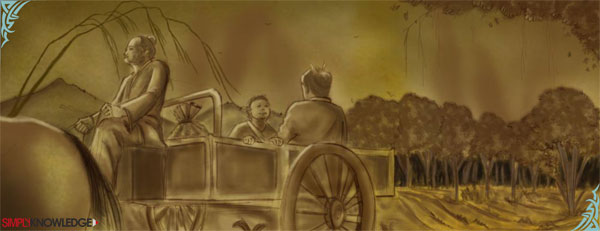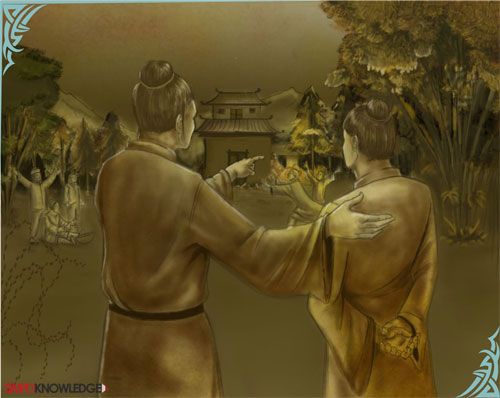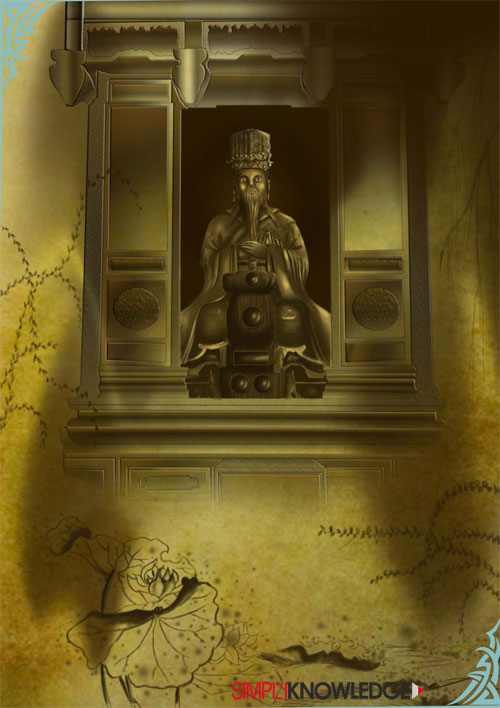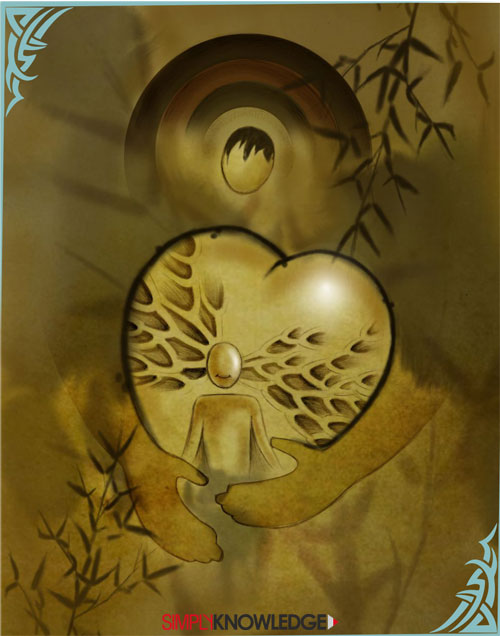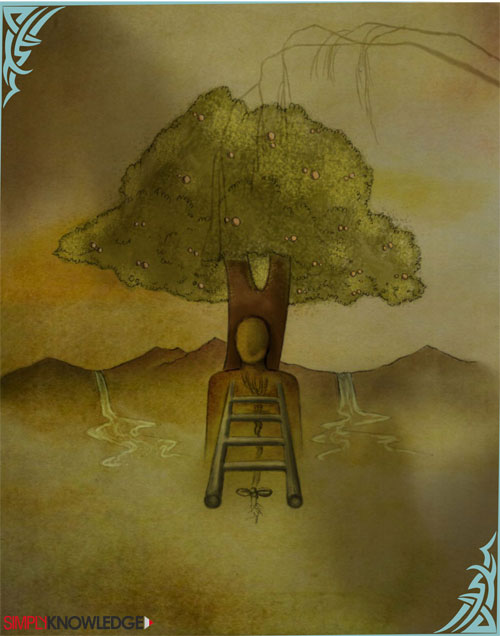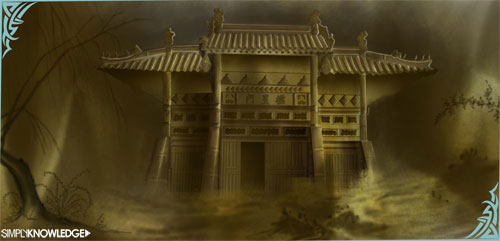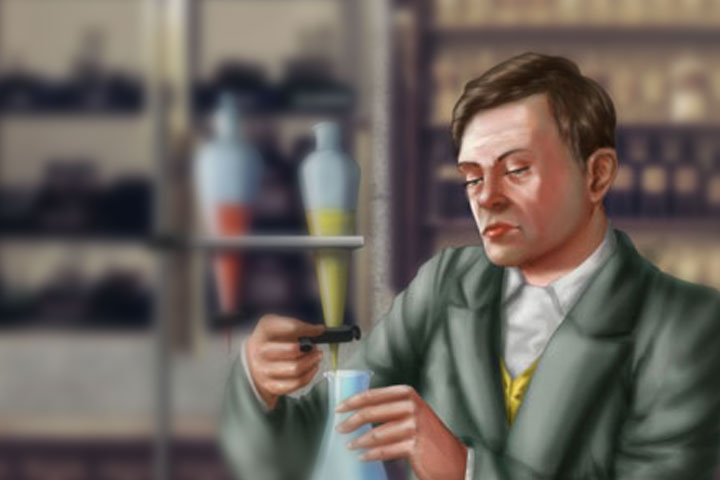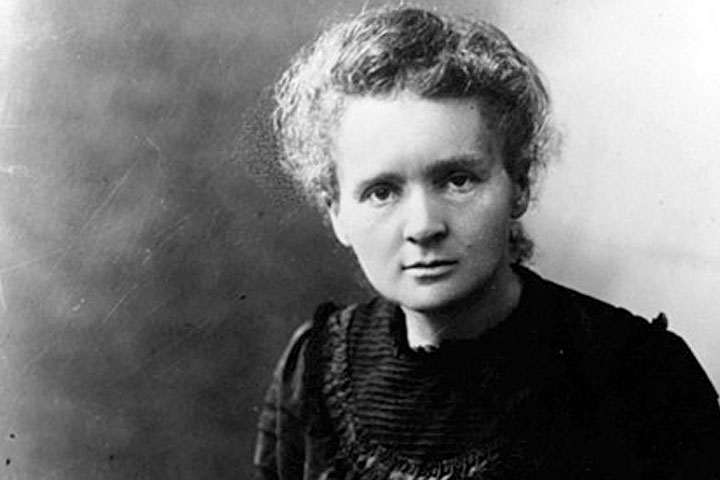
Introduction
“The way of truth is like a great road. It is not difficult to know it. What is evil that humans do not seek this road despite knowing it,” said Master Meng, a great Chinese thinker, who is also known by his Han Chinese name, Meng Zhi and its Romanized version, Mencius.
Meng Zhi’s name was unknown in the field of psychology till the last couple of decades. Fresh light shed upon his works in recent years prove, Meng Zhi was a pioneer of sorts in moral psychology and his teachings, which are based on thoughts of another great Chinese thinker, Confucius. Psychologists worldwide now credit Meng Zhi for proliferating Confucianism and developing the stream further, with his own thoughts. An excellent example is his above quote which says that living truthfully or virtuously is not difficult. Yet, the human race is steeped in evil because they simply do not desire a virtuous life.

Birth
Meng Zhi was born as Meng Kuo in the ancient Chinese city-state Zhou. Due to discrepancies in translations, historians peg his year of birth between 385BC and 375BC. Details about his parentage are distorted, but it is claimed, Meng Zhi’s father was Zhu Kuo, a locally renowned physician while his mother Chang Shih was a highly learned woman of exceptionally noble character.

Meng Zhi’s mother
Meng Zhi’s mother, Chang Shih, is considered one of the greatest women of ancient China. Ancient Chinese historian and chronicler, Liu Xiang, in his voluminous book titled ‘Lienu Zhuan’ or ‘Biographies of Greatest Women’, penned around 180BC, dedicates an entire chapter to Chang Shih for her exceptional qualities and not merely as Meng Zhi’s mother.

childhood
Born in an affluent, respected family, Meng Zhi had a comfortable childhood for the first few years. However, that changed when his father Zhu Kou passed away due to some incurable illness, when Meng Zhi was around eight years old.
His widowed mother Chang Shih was left to fend for herself and young Meng Zhi. Determined to maintain a respectful life with a small inheritance from her late husband, Zhang sought an austere life and hoped to afford the best education for her son. She took respectable jobs to eke an existence for herself and her son. Meng Zhi and his mother led a frugal life due to lack of financial resources but Chang Shih never compromised on the quality of education for her young son. As a child, Meng Zhi was notorious for his peculiar capers, most of which did not behove his educated parentage, especially during an era when the Chinese society laid great emphasis on traditions, decorum and propriety.

A mother’s effort
Indeed, the relentless efforts of Chang Shih played the pivotal role for her son Meng Zhi to rise to heights that are comparable with only those of the great thinker, Confucius.
Several anecdotes, which historians aver, could be true considering Chang Shih’s impeccable character as a mother, are quoted till date. One of them states, Chang Shih, to lower expenses, relocated to three different homes. She feared that the vicinities where they lived were having an adverse effect on her son’s thoughts.

The Three Houses
Shortly after Meng Zhi’s father Zhu Kuo passed away, the young widow rented a house in the vicinity of a cemetery. Young Meng Zhi would watch funerals and mourners with avid interest. Later, he would amuse his playmates by mimicking scenes he witnessed at the cemetery, including the carrying of a corpse, the wails of mourners and parody of funeral prayers recited by priests performing the last rites.
Mortified at her son’s behaviour, she relocated to another house located in a busy marketplace hoping the better environs would influence her impish son’s behaviour. But the puckish Meng Zhi amused himself here too: He learnt profanities and calls peculiar to street vendors and would play around the market masquerading as one, much to the chagrin of these small traders. During the era, hawkers were considered flippant in China. Yet the jocund Meng Zhi would mingle with them and banter and use scurrilities with customers, much to the consternation of mother Chang Shih.
Alarmed at this behaviour, Chang Shih assiduously searched for a new home, settling for one near a renowned school while hoping her Meng Zhi would learn to imitate the master and his students. Indeed, Chang Shih’s astuteness bore fruit as her son began aping the teacher and pupils, which were later to have a profound impression on Meng Zhi’s life.

Highest virtues
Another popular legend states, when Meng Zhi was young, he saw a butcher kill pigs. He asked his mother Chang Shih about this slaughter. She replied, the butcher was slaying pigs to sell their meat so Meng Zhi could eat. Instantly, Chang Shih realized she had lied to her son since she had never served him pork due to poverty. Overwhelmed by guilt and fearing her son would learn lying, Chang Shih went to the butcher to buy pork, cooked and served Meng Zhi.
That Chang Shih indeed moulded her son Meng Zhi’s life is evident from an account recorded by historians: Once Chang Shih, while weaving a net, asked her son about how he was faring at school. Meng Zhi replied casually. Realizing this casual remark was caused because she was unable to pay the required attention to her son, Chang Shih snapped the thread and left, alarming other weavers in the group. When questioned, she lectured them stating the severed thread connoted how she had cut links with her son’s learning. She left the work in favour of another, to spend quality time with Meng Zhi. Her relentless efforts paid rich dividends with Meng Zhi excelling at school.

Physiology or Psychology
Meng Zhi’s academic excellence impressed his teachers vastly. They believed he would become a famous physician and gain favour with local aristocracy. However, since his teens, Meng Zhi never displayed any interest in learning medicine or physiology. Instead, he seemed to be interested in the works of Confucius, Lao Tzu and other great teachers of ancient China.
Unverified accounts claim Meng Zhi began travelling to the nearby town Qi, made famous by Confucius and studied under his descendant Zhu Su, also called Zhishi. Regardless of veracity of this legend, historians agree that Meng Zhi indeed studied Confucianism in-depth and was well versed in the Confucian text, ‘The Analects’ since his late teens. He was also conversant with the teachings of Lao Tzu, the founder of Taoism. And, his mother, Chang Shih, a virtuous woman without any written works to her credit, was his teacher in the human morals.
Meng Zhi began augmenting his mother’s income by tutoring junior pupils of his masters. Once, the father of a wealthy student, impressed by Meng Zhi’s teachings commented that he was wasting his time in Zhou and advised him to seek royal patronage from any powerful ruler. Meng Zhi wistfully replied: “We live, not as we wish to, but as we can.”

The Warring Era
The years during which Meng Zhi lived and flourished was called the ‘Era of the Warring States’ since small and large Chinese states frequently engaged in armed conflicts among themselves, between 403BC and 220BC. During peace, royals and aristocrats would patronize thinkers and scientists, who were called in the local language as ‘Shi’. But as fortunes of rulers swelled and ebbed, so did those of their erudite agnates.
Hence, Meng Zhi chose to live in his native Zhou and become a teacher. In his 20s by now, Meng Zhi had mastered Confucianism and refined it further to a whole new level of thought that dealt with virtue and morals. He extolled his students to remain child-like at heart yet bear an adolescent demeanour when dealing with people to ensure they do not lose respect. “The great man is he who does not lose his child- like heart,” he would say. Indeed, the young master would play with neighbourhood kids and entertain them with his mimicry learned as a child. And Meng Zhi remained a child at home too- a great son of his mother, attending to his mother as she gracefully grew older.
Meanwhile, the frequent wars raging on the frontiers of all Chinese states had caused a peculiar situation that was favourable to highly educated people including Meng Zhi.

Key to success
By now, Meng Zhi had garnered sufficient reputation as an excellent teacher of morals. He was locally called as a ‘Shi’ since he ran his own school. Students from aristocratic families attended his school. Royals from nearby Qi, the hometown of Confucius, would also consult Meng Zhi for advice on governance. “It is not difficult to govern. All one has to do is not to offend the noble families,” he advised these aristocrats.
Since wars were frequent and petty rulers dispensable, the powerful kings depended upon local learned men to act as advisors to their vassals in conquered territories. A nobleman from Qi sought Meng Zhi’s help in governing the fragments of the Lu state. Meng Zhi thus officially became a ‘Shi’, though the title was more honorific and wielded little power. Historians state, the ‘Shi’ were required to teach decorum while attending royal courts and events, rhetoric, virtues and morals to their students. Meng Zhi’s extant texts contain his teachings to students and dialogues with aristocrats and rulers, which help provide an insight into his psychology.

Death
Influenced by his mother and prevailing conditions, Meng Zhi flourished for nearly six decades till he passed away in 290BC in his native Zhou after having served as advisor to several rulers and aristocrats. He had also founded an informal school, whose followers propounded his works further in ancient China, though none of them could achieve equal fame. From an impoverished, impish child, Meng Zhi had risen to fame that very few thinkers in China can claim to have achieved during their lifetime. Hence, his death was considered in ancient China as a great loss.
A legend states, several statesmen attended the funeral of Meng Zhi and the entire state of Zhou mourned the great master’s death. The local government erected a monument to commemorate the great son of the land in what is now the province of Yuan in eastern China. A temple dedicated to Meng Zhi, located in Zhoucheng, a few miles away from Yuan, is a well visited monument to date, which indicates the profound impact the master had on ancient Chinese psychology and its relevance to the modern world. He left behind a rich legacy that was useful for contemporary and future rulers of China.

Ruling the rulers
“Any man should never indulge in what his sense of righteousness forbids nor desire what his conscience prohibits. A skilled artisan does not change his techniques to appease a novice,” he once told a ruler when asked about his thoughts on executing suspected traitors to send a strong signal to an incompetent rival.
The designation was considered venerable and came with lucrative perks that helped Meng Zhi alleviate himself and his mother from poverty. He also married a local woman who helped his mother Chang Shih in running the household.
Historians and psychologists believe, Meng Zhi held the post of a royal advisor to several rulers who overran the Lu state. This position allowed him to put into practice his Confucian principles and refine them further, to suit the needs of the populace since ancient Chinese rulers believed in governing by morals and virtues rather than force and subjugation.
“Let men decide firmly what they will not do, and they will be free to do vigorously what they ought to do,” he said. Meaning, if people developed their own perceptions about right and wrong, they would do only good. Because thoughts usually culminate as actions and unless a person thinks well about others, they will not strive for betterment of the society.

The ‘Thinking Heart’
Meng Zhi firmly believed that humans ought to define what is right and wrong themselves through what he termed as ‘Xin’ or a part physical- part ethereal organ broadly defined as the ‘Thinking Heart’. During his era, the heart was perceived as both- the apex circulatory organ as well as the main seat of thoughts in the human body. Therefore, Meng Zhi, like other ancient Chinese thinkers laid emphasis on a single function the ‘Thinking Heart’. He propounded, all thoughts emerge and end in a person’s ‘Thinking Heart’, the Xin. And these thoughts play the vital role in developing individual nature of humans.

The Thinking Heart and ancient Chinese spirituality
During Meng Zhi’s era, the Chinese society’s ethos revolved around spirituality. The Chinese believed that a single, omnipresent, omnipotent divine force called ‘Tian’. This empyrean deity possessed unequivocal qualities of morality and hence, the two are inalienable. The ‘Tian’ depends upon humans to execute its celestial commands which are aimed at performing morally good deeds for the benefit of the society. The ‘Tian’ is relentlessly beneficial to humans but unpredictable to mankind due to its immanent divinity. Meng Zhi justified human actions by indubitably attributing them to ‘Tian’. His preaching and theories on moral psychology are based upon these three attributes of ‘Tian’. Meng Zhi thus preached, a ruler must astutely govern his subjects like the ‘Tian’ rules over the world.
Simply explained, it means, the ruler should endeavour morally for the wellbeing of the subjects and execute commands aimed at performing such good deeds through humans such as ministers, courtiers, diplomats and other officials. This, in turn, encourages the populace to emulate such high moral virtues, culminating in an ethically vibrant society. For the rulers to be indomitable and immune from questioning, they should never digress from their path of morality.

Political Psychology and Utopian rule
Based upon his understanding about the divine power ‘Tian’, Meng Zhi propounds aristocrats and the military which uphold and enforce the ruler’s power over subjects, are divinely ordained to depose a tyrant. He set overall satisfaction of the populace as the only yardstick to gauge a ruler’s right to power.
“A ruler who pays attention to his greater tasks attends becomes an emperor while the one who indulges in frivolous pleasures is easily overthrown,” he once told a ruler, King Xuan who had gained control over the Lu state.
In a dialogue between Meng Zhi and King Xuan, the great thinker emphasised that every ruler, to attain greatness, has first to venerate his subjects, followed by respect for fruits of the land. An ideal ruler should never seek self aggrandizement. “By gaining the respect of the people, you can become an emperor,” he said.

Dictatorial Democracy
Meng Zhi, in his dialogue with Lu ruler King Xuan, assets any monarch who blunders or flounders in fulfilling duties towards the populace, is liable to answer his subjects. “A ruler expects the subjects to perform their duty and if they fail, they can be punished. It may sound strange but by the laws of ‘Tian’, any ruler who fails in executing morally correct duties, is also liable to be punished,” he said.
Despite his teachings, Meng Zhi never directly supported democracy. Instead, he expounded the theory of “great sages” as rulers whose reign is similar to a beneficial dictatorship but with legitimate acceptance by the subjects. Paradoxically, Meng Zhi also preaches that performing a duty merely because it benefits people is not the right way to govern. Any governance should be based purely on ethics and morals, he said.
Meng Zhi also says that every citizen is capable of overcoming every insidious shortcoming if they are governed by an exemplary ruler. He attributes this to the inherent goodness of human beings, the crux of his moral psychology.

Moral Psychology
Meng Zhi developed his moral psychology on the sole premise that all humans possess a good nature and character. “There is no greater joy than to be conscious of sincerity on self-examination,” he said, implying, very human should be aware of their intrinsic goodness and evil. Such consciousness, through self- appraisal, helps eliminate the undesired elements of a character by focusing on the nobler traits.
He proves his point by arguing that if misfortune befalls an individual, others will rush to rescue because of their immanent goodness. Such help is not spurred by any desire of self glorification or reward since these may never exist or materialize. Further, people will offer help not merely because they are distressed at the victim’s plight or entreaties from the affected person’s kin. The will to help the unfortunate person is connate with human nature. Meng Zhi attributes this innate desire to help as emerging from the human ‘Thinking Heart’,which is accountable for this spontaneous action to help.
Meng Zhi, as part of his ancient moral psychology argues that individuals who are insensitive to pain, pleasure, virtue, morals and other ethereal emotions are similar to denizens though they may possess a human anatomy.

About Virtue
The ‘Thinking Heart’ is present in humans who can use it either for doing good or evil to others, forms the basis of Meng Zhi’s apothegms on virtue. The concept of the ‘Thinking Heart’ was propounded earlier by Confucius as well as other ancient Chinese thinkers. Meng Zhi however refined this theory about the ‘Thinking Heart’ further which forms the foundations of his teachings on virtue.
Meng Zhi was the first to state that human virtues can swerve between altruism and insensitive evil due to four main thoughts that emerge from the ‘Thinking Heart: namely: affection, hatred, respect and judgement.
He explained the concept using an example of two friends, whom he termed as relatives without any bond of blood. “Friends are the siblings God never gave us,” he said.

The Four Seeds
Meng Zhi, unlike his predecessors, further simplifies how people become altruistic or pernicious. He draws a corollary between seeds that develop into trees that bear flowers and fruits. The ‘Thinking Heart’ innate with ‘seeds of the four basic human emotions: affection or love, hatred or shame, respect and judgement, decides the character of a person. If these ‘seeds’ sprout and develop into healthy saplings and trees, their fruition will be evident from a person’s behaviour.
For example, a human whose inherent ‘seeds’ develop well into a properly nurtured shrub, it will bear flowers whose fragrance pervades the neighbourhood. Similarly with character, any individual who loves others selflessly, hates evil and injustice, has respect for traditions and people and is astute in gauging the right and wrong on basis of the other three emotions will develop into an altruistic person who benefits the society. Au contraire, if all or any of these seeds of the four basic emotions are stunted for any reasons, persons become a bane to the society since they are prone to indulge in evil deeds.
In modern psychology, Meng Zhi’s teachings are commonly used to ascribe the phrase “nurture and nature,” implying that individual traits or nature depends upon the manner in which a person was nurtured. These teachings are used, albeit with some modifications, in child psychology and parenting, to date. Meng Zhi emphasises, immanent righteousness reflects as filial behaviour.
Drawing a simile between a waterfall and human virtues, Meng Zhi preached, water always flows below and never upwards, as it is the inherent nature of the liquid. Artificially, water can be made to flow upwards. Similarly, humans are intrinsically good though it is possible to mould them into monstrous beings. Since ancient times, humans believed they were immanently good and Meng Zhi was the pioneer to prove it, although in a primitive fashion, as permitted by science during his era.

legacy
Meng Zhi’s teachings, which are a refinement of other ancient Chinese thinkers and Confucius, found a wider following than his predecessors since they were adopted in entirety by other schools of thoughts. During the last few decades, his teachings have made forays into Western psychology because they deal with politics and morality.
Some historians aver that Meng Zhi, due to his association with royals, could have met thinkers from ancient Europe, Middle East and India but these accounts are largely unverified. For example, Meng Zhi’s famous quote: “Friendship is one mind in two bodies,” is also attributed to one of the greatest Hellenic thinkers, Aristotle.
Next Biography





